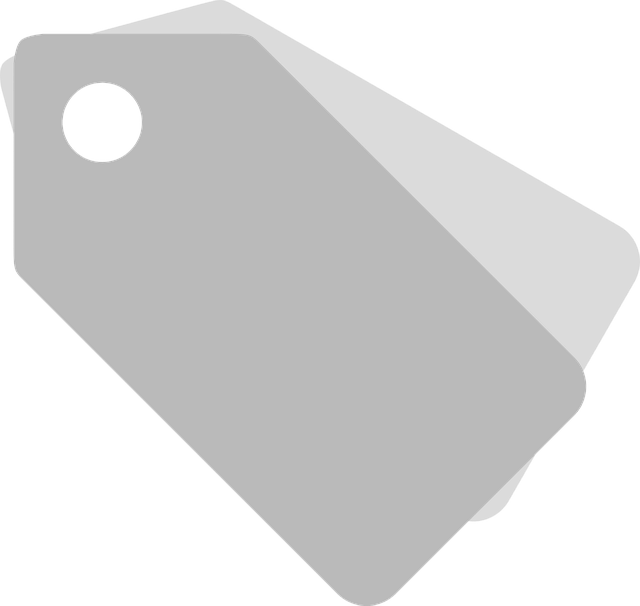Skin tags, common growths driven by age, genetics, and friction, can be removed in Bristol through various methods. Traditional techniques like duct tape and cryotherapy offer effective, cost-effective solutions. Topical creams with ingredients like apple cider vinegar or tea tree oil are popular but results vary. Modern non-invasive procedures like Intense Pulsed Light (IPL) and cryotherapy provide safe alternatives. Some prefer natural remedies like apple cider vinegar, but scientific evidence for their effectiveness differs. Choosing Tag Removal Bristol methods should consider individual needs and outcomes.
Skin tags, those small, harmless bumps on the skin, can be a nuisance. If you’re seeking effective tag removal in Bristol, this guide is for you. We explore various methods from traditional techniques like manual excision to modern non-invasive procedures and even natural remedies. Understanding the causes and types of skin tags equips you to make informed decisions. Discover top-rated topical creams and learn about emerging advancements in skincare technology. Find your perfect solution for smooth, tag-free skin with our comprehensive review, including insights on Tag Removal Bristol services.
- Understanding Skin Tags: Causes and Types
- Traditional Methods for Tag Removal Bristol
- Topical Creams and Salves: A Comprehensive Review
- Non-Invasive Procedures: Latest Advancements
- Home Remedies and Natural Treatments
Understanding Skin Tags: Causes and Types
Skin tags, also known as acrochordons, are small, soft, benign growths that typically appear on the neck, armpits, and groin areas. They are quite common, especially as people age, and usually don’t cause any harm. However, many individuals opt for tag removal Bristol due to cosmetic reasons or discomfort caused by their location.
There are various types of skin tags, varying in size and appearance. Some are single and isolated, while others grow in clusters. They can be inherited, with certain genetic conditions increasing the likelihood of developing them. Hormonal changes, obesity, and frequent friction or irritation from clothing can also contribute to their formation.
Traditional Methods for Tag Removal Bristol
In the quest to eliminate skin tags, many people turn to traditional methods that have been used for centuries. One popular approach is the use of duct tape, which involves carefully applying and leaving the tape on the tag for several days or weeks. This method is relatively painless and can be done at home, making it a preferred choice for those seeking a cost-effective solution for Tag Removal Bristol.
Another traditional technique is cryotherapy, where liquid nitrogen is used to freeze and destroy the skin tags. While this procedure may cause some temporary redness and swelling, it offers a permanent solution for many individuals. These conventional methods have stood the test of time, providing effective relief for those seeking to get rid of these small but sometimes bothersome growths on their skin in Bristol.
Topical Creams and Salves: A Comprehensive Review
When it comes to skin tag removal in Bristol, many people turn to topical creams and salves as a non-invasive approach. These products are designed to target and eliminate tags by breaking down the tissue. The active ingredients in these formulations vary widely, from natural extracts like apple cider vinegar and tea tree oil to more synthetic chemicals such as salicylic acid or lactic acid. Topical treatments offer a relatively painless option for those seeking to get rid of skin tags at home.
Popular choices often come with promising reviews, highlighting their effectiveness and ease of use. However, it’s crucial to remember that results may vary based on individual skin types and the size and location of the tags. Some creams might require consistent application over several weeks to see significant reduction, while others could provide faster relief. Always follow the product instructions carefully and consult a dermatologist if concerns arise during treatment.
Non-Invasive Procedures: Latest Advancements
Non-invasive procedures have seen significant advancements in recent times, offering effective and safe methods for tag removal Bristol. One such procedure involves using intense pulsed light (IPL) therapy, which targets melanin in the skin tags, causing them to fade away over several treatments. This technique is popular for its minimal downtime and non-traumatic nature, making it a preferred choice for those seeking Tag Removal Bristol.
Another breakthrough is the use of cryotherapy, where liquid nitrogen is applied to freeze and destroy skin tags. While it may cause temporary redness and swelling, this procedure is highly effective and often provides permanent results. As technology advances, these non-invasive methods continue to improve, providing individuals with accessible and comfortable options for tag removal without the need for invasive surgery.
Home Remedies and Natural Treatments
Many people opt for home remedies and natural treatments as an alternative to professional tag removal in Bristol. One popular method involves applying apple cider vinegar directly to the skin tags. Its acidity is believed to help dissolve the skin cells that make up the tags over time. Another common approach is using duct tape. This simple household item is stuck on the skin tag for several days, then removed, with the hope of drying out and detaching the tag.
Some natural oils are also thought to be effective. For instance, tea tree oil has anti-inflammatory properties and may help shrink skin tags. Similarly, lavender oil is known for its skin-soothing benefits, and some claim it can reduce the appearance of tags. However, it’s important to note that scientific evidence supporting these remedies varies, and results may differ from person to person.
When it comes to Tag Removal Bristol, understanding your options is key. From traditional methods like excision and cauterization, to modern non-invasive procedures and natural remedies, each has its merits and considerations. Topical creams and salads offer a range of active ingredients for safe, at-home use. For more complex cases or those seeking quicker results, professional treatments provide effective solutions. Ultimately, the best method depends on individual preferences, skin type, and desired outcomes.
